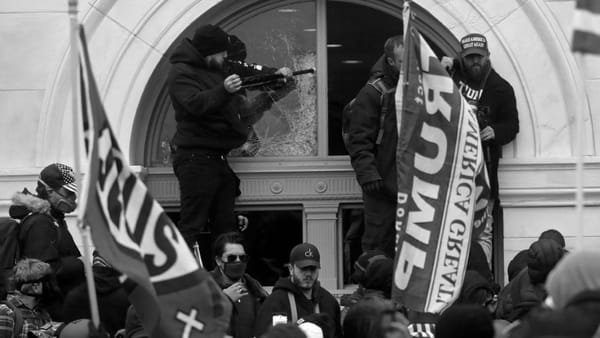"Absolutely Insane”: Pentagon Officials on Trump’s Military Deportation Plan
At a packed Madison Square Garden rally earlier this year, Trump didn’t hold back. He called the situation at the southern border an “invasion.” He vowed to launch the largest deportation effort in American history.

President-elect Donald Trump’s latest plan to involve the U.S. military in mass deportations has reignited fiery debates and raised eyebrows across the board. Trump’s hardline stance on immigration is nothing new, but dragging the military into the equation? That’s a whole new level. Critics—Pentagon insiders included—have labeled the idea “unrealistic,” “impractical,” and yes, even “absolutely insane.”
Trump’s Bold Plan: The Largest Deportation Effort in U.S. History
At a packed Madison Square Garden rally earlier this year, Trump didn’t hold back. He called the situation at the southern border an “invasion.” He vowed to launch the largest deportation effort in American history. It’s the kind of audacious promise that helped propel him to victory—but it’s light on specifics
The plan leans heavily on grand rhetoric and historical references in typical Trump fashion. His “border czar” has floated the idea of using the Department of Defense to manage logistics, from transportation to detention facilities. Trump even dusted off the Alien Enemies Act of 1798—an archaic law meant for wartime situations—as a potential tool to bypass due process. Yes, it is a law from two centuries ago.

Pentagon’s Stance: A Daunting Challenge
The Pentagon, meanwhile, is keeping its official response diplomatic. But behind the scenes? Not so much. Insiders are reportedly scrambling to figure out how to approach what some are calling a logistical and legal nightmare. One major roadblock is the Posse Comitatus Act, a cornerstone of U.S. law since 1878, which strictly limits the military’s involvement in civilian law enforcement. Legal experts warn that trying to sidestep this could unleash a wave of constitutional challenges—and plenty of courtroom drama.
With Trump set to take office in January, defense officials are preparing for what they see as a messy and contentious rollout of these proposals, assuming they move forward.
The Sky-High Costs
Trump’s plan doesn’t just stretch legal boundaries but comes with a hefty price tag. Experts estimate deporting the roughly 13 million undocumented immigrants in the U.S. could cost hundreds of billions of dollars, with some projections approaching $1 trillion over a decade. And that’s not even factoring in the need for massive detention centers and the personnel to staff them.
The economic ripple effects could be just as staggering. Undocumented workers play crucial roles in industries like agriculture and construction, and they contribute billions in taxes annually. Removing them could leave significant gaps in the workforce, disrupt entire sectors, and tank local economies in ways that would ripple nationwide. And then there’s the human toll: families separated, communities uprooted, and lives thrown into chaos.
Legal and Ethical Concerns
Unsurprisingly, civil rights groups are already gearing up for a fight. Organizations like the ACLU have slammed the plan as a dangerous overreach threatening to erode fundamental liberties. Legal scholars are equally skeptical about using outdated laws like the Alien Enemies Act, which hasn’t been seriously invoked in modern history, to justify such sweeping actions.
Critics have also drawn comparisons to the infamous 1950s deportation campaign known as “Operation Wetback,” a program that left a dark stain on America’s immigration history. Many worry that reviving similar tactics could lead to widespread abuses—and possibly even deportations of U.S. citizens, as happened back then.
A Divided Political Landscape
Trump’s proposal has exposed deep rifts within the Republican Party. Some conservative leaders, like Texas Governor Greg Abbott, have embraced the “invasion” rhetoric and supported militarized immigration enforcement. Others, however, are voicing severe reservations about such an extreme plan’s feasibility and political fallout. On the other side of the aisle, Democrats have universally condemned the proposal, calling it unconstitutional and morally indefensible.
Still, Trump’s base is as fired up as ever. For supporters, this plan is a sign that he’s serious about delivering on his promises. Analysts suggest that whether or not the plan is actually implemented, it’s a clear signal of Trump’s continued dominance over the GOP and his ability to set the immigration agenda.
A Nation at a Crossroads
Trump’s proposal to militarize deportations is more than a policy announcement—it’s a defining moment for the country. For supporters, it’s a bold solution to a deeply entrenched issue. For critics, it’s an alarming step away from democratic norms and human rights. As the president-elect prepares to assume office, the battle over this plan is just beginning. The outcome won’t just shape the early days of his administration—it could redefine U.S. immigration policy for years to come.
At DayMark News, we are committed to exposing the rise of authoritarianism and its threat to democracy. In a time when disinformation spreads like wildfire and democratic institutions face relentless attacks, we need your support to keep the fight alive.
Investigative journalism is our weapon against authoritarian ideologies. We delve deep to uncover the truths others would rather keep hidden, while providing actionable resources to empower individuals like you to defend our democracy.
We believe in transparency, integrity, and the power of a well-informed public. But maintaining a platform dedicated to fearless reporting and mobilization requires resources. We refuse to bow to corporate interests or compromise our mission. That's why we turn to you — our community.
Every donation, big or small, helps us continue our work. With your support, we can produce the in-depth analyses, breaking news, and educational tools needed to resist the rise of extremist movements and protect democratic values for future generations.
This fight belongs to all of us. Together, we can ensure that democracy not only survives but thrives. Please consider making a contribution today to keep DayMark News strong and independent.
Donate Now: Because Democracy Can't Defend Itself.





